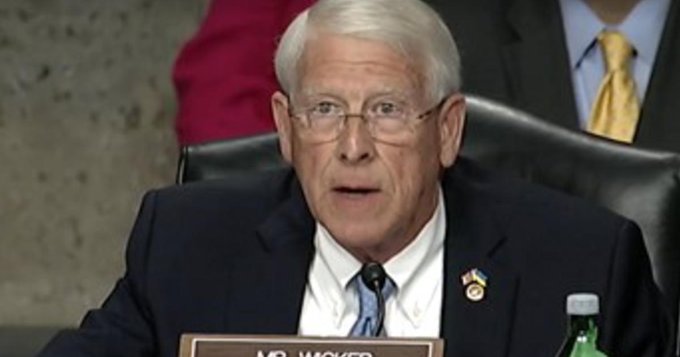Wicker: Promotes rural health care
By Sen. Roger Wicker (R-Miss.)
Senator Works to Make Telehealth Access Permanent
Less than 20 percent of the nation lives in rural areas, but over half of Mississippi’s population does. Most doctors, clinics, and hospitals are in cities, which can make it harder for many rural residents to access health care. In Congress, I am supporting two efforts that will help meet the needs of underserved areas of our state.
Working to Extend Temporary Telehealth Laws
During the pandemic, Congress expanded health care providers’ ability to conduct appointments with patients over video calls. Since then, Americans have come to see the value of telehealth. It has proven to be a cost-effective way to increase access to health care. The technology has allowed patients to choose the medical provider who best fits their needs, and it has made use of the broadband expansion Mississippi has enjoyed in the last few years.
However, long before COVID-19 broke out, I saw how telehealth could bring care to rural communities. In 2016, I introduced the CONNECT for Health Act. Mississippi providers had already been finding success in telehealth consultations. I wrote this legislation to facilitate their work by lifting Medicare restrictions.
My work on telehealth is continuing, because the laws permitting this service are set to expire this year. I am leading a bipartisan group of legislators in an effort to keep this useful tool alive.
In particular, I am pushing for Congress to make permanent a series of common-sense proposals. One would remove geographic restrictions, letting patients have virtual meetings with providers regardless of location. Another would expand the number of doctors eligible to practice telehealth and would allow health centers and rural health clinics to provide this service. A third would make it easier for patients to access mental health care online by eliminating a requirement mandating unnecessary in-person visits.
Protecting Rural Nursing Homes
Of course, not all health care can be performed remotely. Clinics, nursing homes, and hospitals all need to be run in-person by a team of health care professionals. In rural areas of our state, this is sometimes difficult, as long-term care facilities find it challenging to attract staff.
Unfortunately, the Biden administration has moved to make that work even harder. The Department of Health and Human Services (HHS) imposed a burdensome staffing guideline on long-term care facilities. The agency now requires a registered nurse to be at these centers twenty-four hours a day. Most nursing homes in Mississippi are already struggling to be fully staffed, and they cannot comply with this rule.
I have joined several of my colleagues in legislation that seeks to block the HHS mandate. Our bill would also establish a panel to advocate for the needs of both urban and rural communities when it comes to nursing home staffing. This month, I cosponsored a Congressional Review Act (CRA) to overturn the HHS regulation. CRAs are a special Congressional power to block executive branch rules. To date, Democratic leadership of the Senate has failed to bring this CRA to a vote. I am hopeful that they will soon, especially since this legislation has bipartisan support.
In Congress, I will continue pushing to expand telehealth services and to protect providers from burdensome regulations. Both efforts will benefit patients in all of Mississippi’s communities.
Note: This article is the weekly Wicker Report from Sen. Roger Wicker and provided by his office. Any opinions provided in this item are that of the writer and not necessarily that of this publication.




